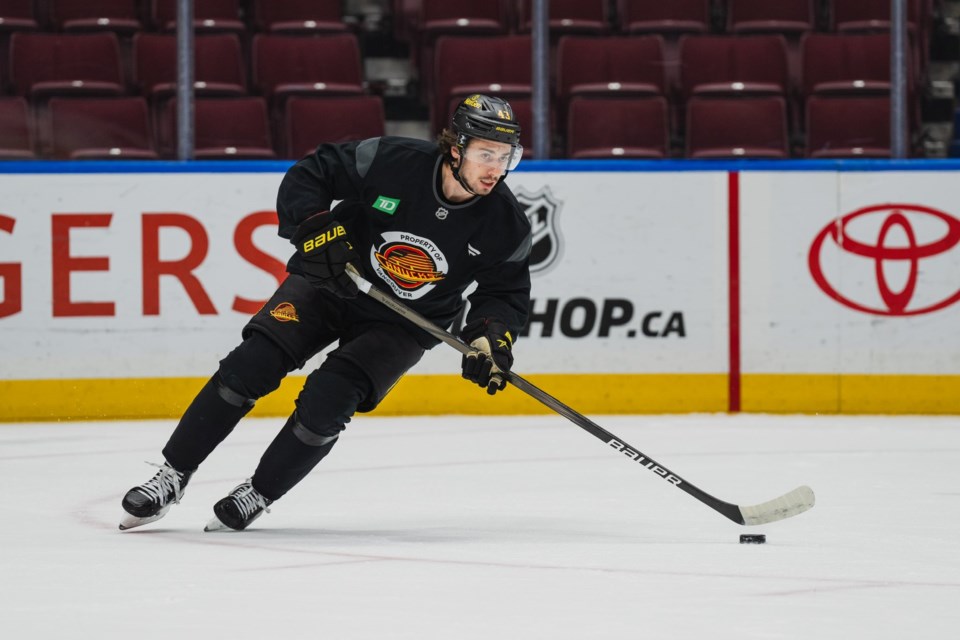Quinn Hughes did everything he could to prove to himself that he could play for Team USA at the NHL's 4 Nations Face-Off.
The captain of the Vancouver Canucks suffered an injury during a game against the Dallas Stars, later reported to be an oblique injury. The external oblique muscles are a pair of large, flat muscles on either side of your torso that are responsible for turning and twisting your upper body, while the internal oblique muscles are smaller and thinner and primarily responsible for flexing your trunk.
The recovery time for an oblique injury can be anywhere from a few days for a mild strain to 3-4 months if it's a severe strain that requires surgery. Hughes attempted to return two days later against the Detroit Red Wings, taking the warm-up skate prior to the game, but was held out by Rick Tocchet and the Canucks' training staff.
“He wanted to gut it out,” said Tocchet after that game. “But it was not the smartest play to play him. You know him, he wants to play in every game. In 48 hours, we’ll see how he is.”
Hughes missed that game and then three more for the Canucks, even as he tried to push himself to return. On the morning of the Canucks' final game before the break on Saturday, Hughes was still testing his injury to see if he could play.
"He skated today pretty hard," said Tocchet but said Hughes wouldn't play against the Toronto Maple Leafs.
The big question was whether Hughes, after missing four games for the Canucks, would play at the 4 Nations Face-Off. He badly wanted to, as it's not only a rare chance to represent his country but also a rare chance to play with his brother, Jack Hughes. It was a decision they needed to make quickly.
"The next hours, whether it's 24 hours or 12 hours, the dialogue's got to ramp up," said Tocchet on Saturday. "We've got to figure this out. The U.S. is going to have to name a guy if he doesn't play. It's not like we've got a few days — it's hours before the decision's going to be made."
On Sunday, the decision was announced: Hughes would not play for Team USA.
“His level of maturity is unmatched for a 25-year-old,” said Hughes' agent, Pat Brisson, to Sportsnet's Iain MacIntyre. “It was so hard for him to make that final decision [with] the chance to play with his brother on Team USA. But he just feels responsible as the captain of the Vancouver Canucks to be the best he can be for his team.”
The upside for Hughes is that he will get two weeks to rehab his oblique injury, as well as the hand injury he's been playing through since the beginning of January. The Canucks don't play again until February 22, which will be three weeks after Hughes' last game. Hopefully, that will be enough time for Hughes to get back to 100 per cent.
The Canucks badly need Hughes healthy. Even though they've gone 3-0-1 in the four games without Hughes, it's been clear that his dynamism has been missing. The odds are that the Canucks won't even make the playoffs without Hughes, let alone make a run in the postseason.
Hughes is not just the favourite to win his second straight Norris Trophy as the best defenceman in the NHL but also a potential candidate for the Hart Trophy as league' most valuable player.
So, while Hughes might have been able to push through his injury and play hurt for Team USA, getting fully healthy for the final stretch of the Canucks' season is more important.
Ottawa Senators defenceman Jake Sanderson was named Hughes' replacement for Team USA.



